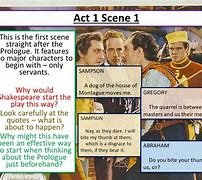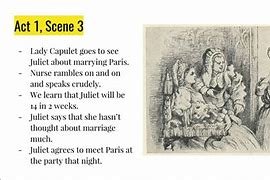
Okay, here’s your SEO-friendly introduction about Act 3, Scene 1 of Romeo and Juliet:
Act 3, Scene 1 of Shakespeare’s Romeo and Juliet: A Tragedy in the Making
Act 3, Scene 1 of Shakespeare’s Romeo and Juliet marks a turning point in the play, escalating the conflict and leading to a series of tragic events. The scene opens with the aftermath of Romeo’s banishment from Verona, a consequence of his fatal duel with Tybalt. This scene unravels the chaos and grief following Romeo’s actions, with characters grappling with the implications of his choices and the consequences of their long-standing feud.
Juliet, oblivious to the news of Romeo’s banishment, eagerly anticipates his arrival. Her heart swells with anticipation for their secret meeting. Yet, the scene quickly shifts from one of love & anticipation to utter despair. Juliet’s happiness is shattered by the news of Tybalt’s death, as well as Romeo’s involvement and the subsequent punishment. The gravity of Romeo’s exile is revealed, plunging the already strained families into further animosity.
As the scene progresses, Juliet faces a dilemma: her loyalty to Romeo & her desire to reunite with him clashes against her obedience to her parents. She mourns for Romeo’s absence, recognizing his exile as her own personal tragedy. Her powerful, yet conflicted, emotional response lays bare the tragedy’s human cost, setting the stage for a tumultuous future & the heart-wrenching consequences to follow. This pivotal scene sets the foundation for Romeo and Juliet’s subsequent attempts at reconciliation, further solidifying their unwavering love while also showcasing the undeniable impact of family feuds and societal constraints that impede their path to happiness.
Related Post : title vii of the civil rights act of 1964 quizlet
This scene’s significance lies in its dramatic depiction of love, vengeance, and loss, creating an emotional rollercoaster of love & despair that effectively showcases Shakespeare’s brilliance. It sets the stage for the unraveling of Romeo & Juliet’s world and paves the way for the tragic climax that awaits. The scene leaves readers reeling with emotion, captivated by the power of Romeo and Juliet’s enduring love, yet haunted by the growing darkness & the inescapable reality of the tragic consequences that lie ahead.
Act 3, Scene 1: The Heart of the Conflict
Act 3, Scene 1 of Shakespeare’s Romeo and Juliet is a pivotal moment in the play, setting the stage for the tragedy that unfolds in the following acts. The scene is characterized by conflict, marriage, and the Friar’s involvement, all of which intertwine to create a dramatic and impactful narrative.
The Friar's function in the Marriage
Friar Laurence, a wise and compassionate character, plays a significant function in Romeo and Juliet’s marriage. He becomes involved in their relationship by performing the secret wedding ceremony, aiming to bring peace to the feuding families.
The Friar's function in the Marriage: How did Friar Laurence become involved in Romeo and Juliet's marriage?
Friar Laurence, a man of peace and a devout Catholic, believed that the union of Romeo and Juliet could end the feud between the Montagues and Capulets. He saw the love between the young couple as a symbol of hope for reconciliation. The Friar’s belief in the power of love is evident in his words, “For this alliance may so happy prove, / To turn your households’ rancor to pure love.”
The Friar's Motives: What were the Friar's intentions when he married Romeo and Juliet?
Friar Laurence’s intentions were noble. He wanted to end the feud between the families, believing that a union between Romeo and Juliet would bring peace and harmony. He also saw the love between the young couple as a sign of hope for a better future.
The Friar's Impact on the Play: How does the Friar's involvement in the marriage set the stage for the tragedy that unfolds?
While Friar Laurence’s actions were well-intentioned, his involvement in the marriage ultimately contributes to the tragedy that unfolds. The secret marriage, while intended to bring peace, only adds to the confusion and misunderstandings that escalate the conflict between the families. The Friar’s actions are a testament to the complexities of human nature and the unpredictable consequences of even the most well-intended actions.
Romeo and Juliet's Secret Marriage
Romeo and Juliet’s secret marriage is a key element in the play, adding to the intrigue and tension.
The Secret Marriage: Why did Romeo and Juliet keep their marriage a secret?
Romeo and Juliet kept their marriage a secret because of the ongoing feud between their families. They feared that their families would disapprove of their union, possibly leading to further conflict and violence.
The Importance of the Secret: How does the secrecy surrounding their marriage impact the play?
The secrecy surrounding their marriage has a profound impact on the play. The secret marriage creates a sense of urgency and desperation, as Romeo and Juliet are forced to live a double life. The secrecy also contributes to the misunderstandings and miscommunications that escalate the conflict between the families.
The Impact on Their Families: How does the secret marriage affect the relationship between the Montagues and Capulets?
The secret marriage creates a complex dynamic between the Montagues and Capulets. The families remain unaware of the marriage, which only adds to the animosity and distrust between them. The secrecy further underscores the tragic nature of the conflict, as Romeo and Juliet are caught in the middle of a feud that they cannot control.
The Building Tension and Conflict
Act 3, Scene 1 is a pivotal moment in the play, where the conflict between the Montagues and Capulets reaches a boiling point.
The Escalating Conflict: How does Act 3, Scene 1 contribute to the mounting tension between the families?
The conflict between the families escalates dramatically in this scene. The death of Mercutio, a close friend of Romeo, intensifies the feud and leads to Romeo’s banishment.
The function of Tybalt: How does Tybalt's actions escalate the conflict between the Montagues and Capulets?
Tybalt, a hot-headed Capulet, is a key catalyst for the escalating conflict. He challenges Romeo to a duel, despite Romeo’s attempts to avoid violence. Tybalt’s arrogance and violence are central to the conflict between the families.
Romeo's Dilemma: How does Romeo's decision to not fight Tybalt create further conflict?
Romeo’s decision to not fight Tybalt, out of respect for his newfound brother-in-law, creates further conflict. His refusal to defend himself is seen as a sign of weakness by Tybalt and Mercutio, leading to further violence and animosity.
The Tragedy Begins to Unfold
The events of Act 3, Scene 1 mark a turning point in the play, with the tragedy unfolding. The deaths of Mercutio and Tybalt have devastating consequences for Romeo and Juliet.
Mercutio's Death: How does Mercutio's death change the course of the play?
Mercutio’s death is a turning point in the play. His death is a direct outcome of the feud between the Montagues and Capulets. It is a catalyst for Romeo’s rage and the subsequent banishment.
Romeo's Banishment: Why is Romeo banished from Verona?
Romeo is banished from Verona as a outcome of killing Tybalt in a duel. The Prince, determined to maintain order in the city, decides to exile Romeo, rather than execute him.
The Consequences of the Banishment: How does Romeo's banishment impact Juliet and the future of their marriage?
Romeo’s banishment has devastating consequences for Juliet and the future of their marriage. It separates them and makes their future together uncertain. The banishment is a powerful symbol of the destructive nature of the feud between the families.
The function of Love and Passion
Love and passion drive the actions of Romeo and Juliet, but they are also the source of much of the tragedy.
The Power of Love: How does love and passion drive the actions of Romeo and Juliet?
Romeo and Juliet are consumed by their love for each other. Their love is passionate and intense, driving them to take risks and defy their families. Their love is a powerful force that transcends the boundaries of family and society.
The Obstacles to Love: How do the obstacles to their love contribute to the tragedy?
The obstacles to Romeo and Juliet’s love, such as the feud between their families, contribute significantly to the tragedy. These obstacles create a sense of urgency and desperation, leading to rash decisions and tragic consequences.
Love and Hate in Conflict: How does the play explore the conflicting forces of love and hate?
The play explores the conflicting forces of love and hate in a complex and compelling way. Romeo and Juliet’s love is a powerful force that transcends the boundaries of family and society. However, the hate between the Montagues and Capulets is equally powerful, leading to violence and tragedy.
Conclusion: The Unfolding Tragedy
Act 3, Scene 1 is a pivotal moment in the play, setting the stage for the final act. The consequences of Romeo’s actions, the banishment, and the escalating conflict between the families create a bleak outlook for Romeo and Juliet.
The Impact of Act 3, Scene 1: How does Act 3, Scene 1 set the stage for the final act of the play?
Act 3, Scene 1 sets the stage for the final act by creating a sense of despair and hopelessness. The death of Mercutio, Romeo’s banishment, and the escalating conflict between the families create a sense of inevitability, foreshadowing the tragic outcome of the play.
The Future of Romeo and Juliet's Love: How does Act 3, Scene 1 foreshadow the tragic outcome of Romeo and Juliet's love story?
Act 3, Scene 1 foreshadows the tragic outcome of Romeo and Juliet’s love story. The events of the scene create a sense of hopelessness, suggesting that the future holds only darkness and despair for the young lovers.
The Importance of Act 3, Scene 1: Why is Act 3, Scene 1 considered a pivotal moment in the play?
Act 3, Scene 1 is considered a pivotal moment in the play because it marks a turning point in the narrative. The events of the scene have a profound impact on the future of the play, leading to the tragic climax in the final act. The scene is a testament to the destructive nature of conflict and the unpredictable consequences of human actions.

Leave a Reply